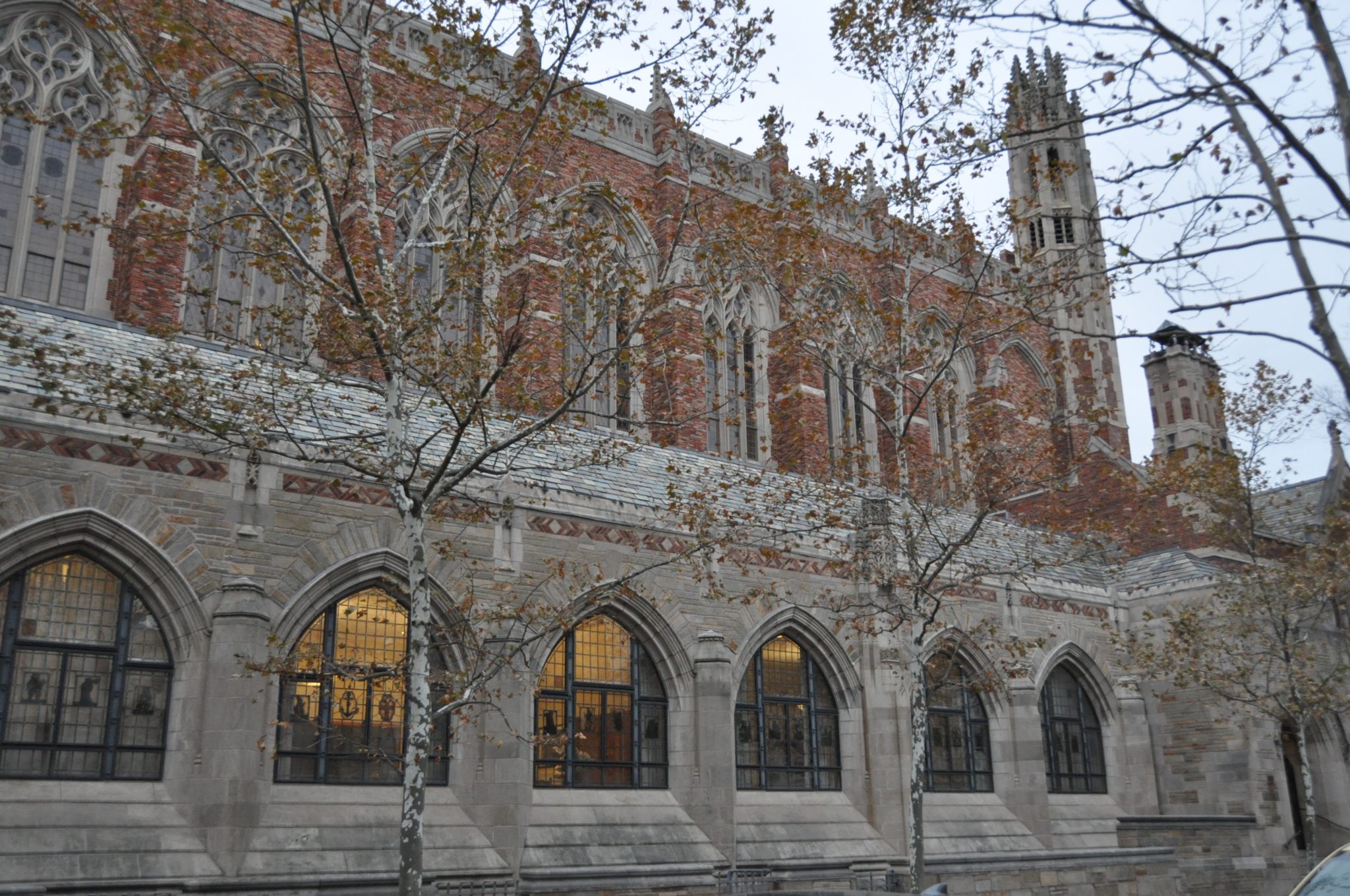
Madelyn Kumar
Nearly 50 students, faculty and community members attended a screening of the Frontline and New York Times documentary “Life on Parole” on Monday at the Yale Law School, which was followed by a panel discussion about parole in Connecticut.
The Advanced Sentencing Clinic — in conjunction with nearly 10 other Law School groups — hosted the screening of the documentary, which was released in 2017 and follows the lives of four parolees during the parole process. In the clinic — which works in collaboration with the Criminal Justice Clinic and Challenging Mass Incarceration Clinic — law students handle all aspects of cases and projects related to state parole reform projects and federal supervised release revocation hearings. This involves building relationships with clients and agencies, gathering evidence and arguing on clients’ behalf. Professors Miriam Gohara, Marisol Orihuela LAW ’08 and Fiona Doherty LAW ’99 — the latter of whom is also featured in the film — instruct students in the clinic. The moderated panel discussion that followed included the film’s co-producer Jeff Arak, Parole Revocation Unit supervisor Elisa Villa, former Connecticut criminal justice undersecretary Mike Lawlor and parole officer Katherine Montoya, who was featured in the film.
“The original idea was looking at why recidivism rates are so high in this country,” Arak said in the panel discussion. “Connecticut was a good subject because it has a unified system […] and because they’re doing all this reform.”
According to Lawlor, politicians pushed for reform after the 2007 Cheshire, Connecticut murders, in which two recently released parolees invaded a home and murdered the family. In 2015, then-Gov. Dannel Malloy unveiled the Second Chance Society, a reform initiative aimed at decreasing the prison population and offering more opportunities for release. The prison population in Connecticut is now at its lowest point in 26 years, according to Lawlor.
Lawlor described the reform efforts over the last 30 years as changing the role of parole officer from “referee” to “coach.” In Connecticut, the parole officer now provides mentorship to parolees instead of simply “catching” parolees’ violations of terms of release, according to Lawlor.
In 2017, the Samuel Jacobs Criminal Justice Clinic and Jerome N. Frank Legal Services Organization released a report called “Parole Revocation in Connecticut: Opportunities to Reduce Incarceration” after students from the clinic observed nearly 50 revocation hearings in November 2015 — with 100 percent ruling in violation of the terms of release and 79 percent resulting in parolees subsequently losing employment.
Students also noticed people appealing parole in many cases did not have counsel. Students in the clinic advocated to ensure that parolees had their constitutionally guaranteed counsel, prompting Connecticut to pass a law mandating public defenders for those facing public revocation hearings.
“Life on parole is complicated for all those involved — government, department of corrections, parole officers, and those on parole — whose lives are often upended by the disruptive nature of the process,” said John Gonzalez LAW ’20, a member of the Advanced Sentencing Clinic in his opening address as the event’s emcee.
According to the documentary, nearly one-third of those on parole in Connecticut violate their terms of release. Balancing freedom and parole terms of release, according to Villa, is very difficult for many parolees.
“[Some of the issues with parole] are substance abuse, mental health issues and ability to follow a director,” Villa said. “Those combined with how long they’ve been locked up — especially those in out and out of the system — make it hard to be out in this structured environment [parole] where there really isn’t any freedom and they have to follow all these rules with too much temptation not to.”
As to reform for the future, the panelists shared their thoughts with those in attendance. Lawlor discussed the theoretical purpose of parole, which he explained was “helping the transition from incarceration to the community to increase chances of success.”
“Many people think of it as early release but it continues to be real challenge talking to media […] and working through it with journalists, policymakers, and students,” Lawlor said.
Arak echoed the challenges with how media frame issues around criminal justice. With the 2020 presidential election around the corner, he specifically cited politicians’ use of the Boston Marathon bombers as the prototypical criminal.
“It is incumbent on the media not to frame issues in terms of the worst cases,” Arak said. “As long as we’re framing things around scary things, we’re losing the true benefits of reform and we’re not taking risks that would in the end help people.”
The documentary “Life on Parole” first aired in July 2017.
Samuel Turner | samuel.turner@yale.edu







